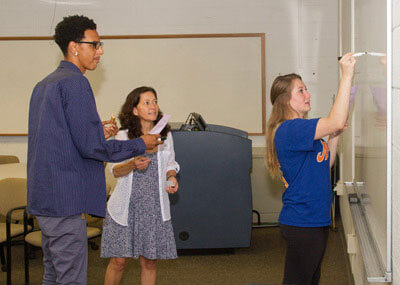
Mathematics - BA
Our program gives you a strong math foundation, and the ability to choose from a number of mathematics electives to customize your curriculum. It’s a good fit if you are planning to pursue a career in business, education or technology and enjoy math!

